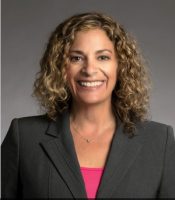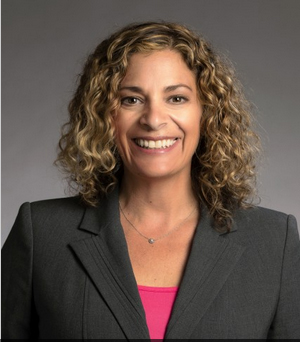Last week Stop Foodborne Illness announced who would be filling the role of its retiring CEO Deirdre Schlunegger: Mitzi Baum. Previously managing director of food safety at Feeding America, Baum has extensive experience in the non-profit space as well as the realm of retail management. In a Q&A with Food Safety Tech, Baum discusses where she sees Stop Foodborne Illness moving forward in its advocacy role and how the organization will work with both industry as well as consumers in the future.
“I am excited to assume the role of CEO at Stop Foodborne Illness. We are at a point in our evolution to identify new opportunities to expand awareness, create a strategy to pursue those new opportunities and implement and execute our plan,” says Baum. “You will be hearing a lot from Stop in the near future.”
Food Safety Tech: You bring a tremendous amount of experience to your new role at Stop Foodborne Illness. How will the organization work with industry to advocate for food safety moving forward?
Mitzi Baum: In my previous position, I had the opportunity to build relationships, network with food safety peers in food manufacturing and retail and work on food safety issues. I would like to use that experience to our advantage as we identify new ways to work cooperatively with industry to move toward a safer supply chain and expand foodborne illness education and awareness throughout the food system. Stop has also fostered many relationships over the years; now we would like to translate those relationships into partnerships to affect greater impact and reduce the incidence of foodborne illnesses.
FST: Where are the key areas in which Stop will be focusing in its continued effort to both promote awareness of foodborne illness as well as prevention?
Baum: Moving forward, we will build upon relationships to promote awareness of foodborne illness prevention. Currently, we have 10 industry partners working with Stop to identify new training techniques to increase awareness of the impact of foodborne illnesses. In the next few months, we will run pilots to test the techniques, gather data, make adjustments and reassess. After the pilot phase, we will work with an expanding number of companies to implement an appropriate model that will result in measurable improvements for internal foodborne illness awareness.

FST: Given your experience in food insecurity, where do you see the most progress in addressing sustainability? Where is there work do be done?
Baum: There has been a lot of progress regarding increased awareness of sustainability and reduction of wasted food. Sustainability is an essential part of the food industry and there has been little to no discussion about the topic until the past few years. Thankfully, it has become a badge of honor for companies to include sustainability into their organizational culture. With a pivot to focus on sustainability, topics such as utilization of natural resources, types of packaging materials and long-term environmental impact have become the focus for an industry that can be a model for other industries.
With regard to food waste, the new cooperative initiative between USDA, EPA and FDA can certainly help to accelerate impact. It is my hope that the regulatory agencies can work to modify regulations that prohibit the donation of safe, wholesome foods that end up in landfill rather than on the dinner table. The amount of wasted food in this country is shameful.
FST: As FDA steps into its “New Era of Smarter Food Safety”, will Stop Foodborne Illness be collaborating with the agency on any new/current initiatives?
Baum: Absolutely. We want to participate and represent our constituents in this important work. Stop’s expertise and consumer-focused perspective is essential to have at the table. As the FDA plan rolls out, Stop will be identify the appropriate opportunities to assert its influence and continue to advocate for sound food safety policy.



